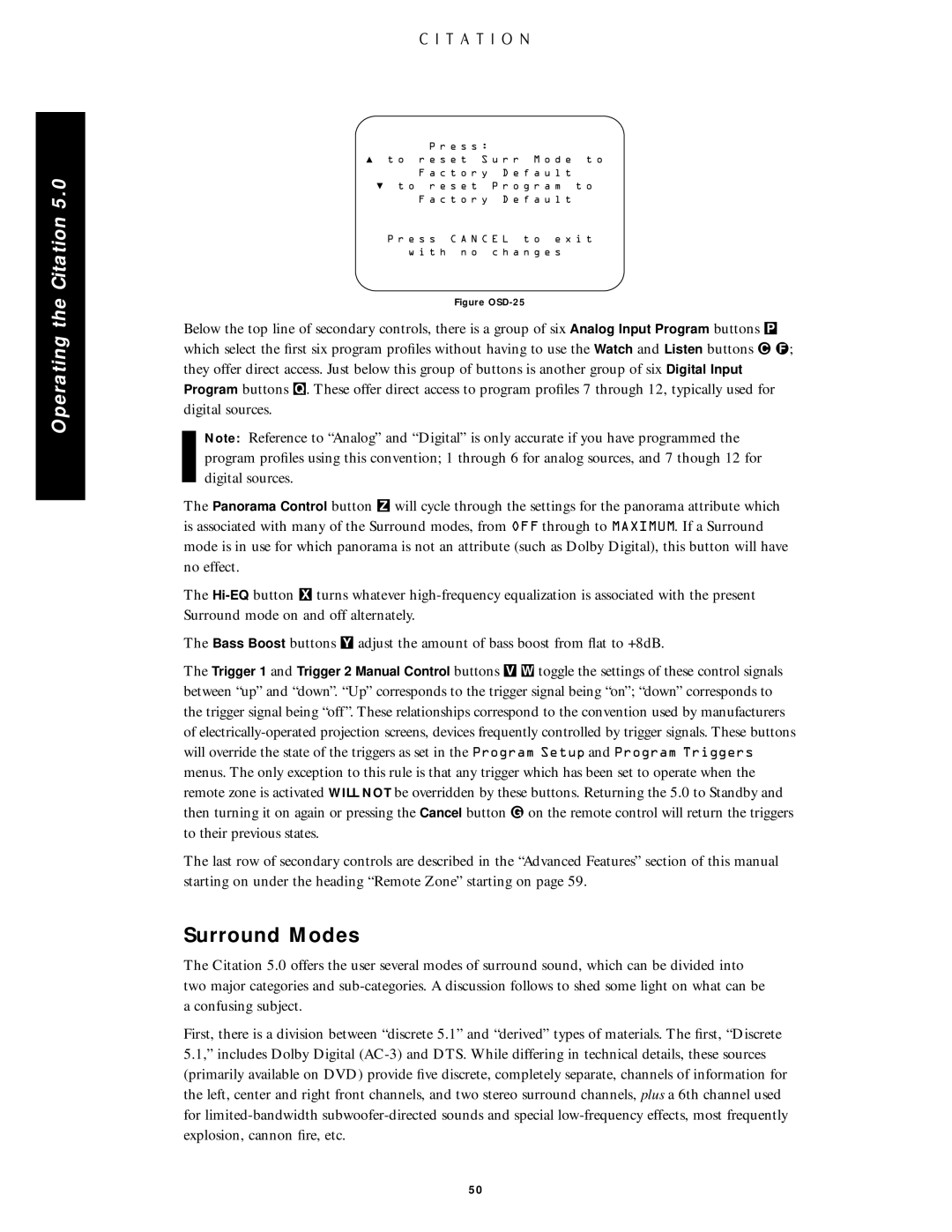
Operating the Citation 5.0
| P r e s s : |
|
▲ | t o r e s e t S u r r M o d e t o | |
| F a c t o r y D e f a u l t | |
˜ | t o r e s e t P r o g r a m t o | |
| F a c t o r y | D e f a u l t |
P r e s s C A N C E L t o e x i t w i t h n o c h a n g e s
Figure OSD-25
Below the top line of secondary controls, there is a group of six Analog Input Program buttons P which select the first six program profiles without having to use the Watch and Listen buttons • Ä; they offer direct access. Just below this group of buttons is another group of six
Program buttons Q. These offer direct access to program profiles 7 through 12, typically used for digital sources.
Note: Reference to “Analog” and “Digital” is only accurate if you have programmed the program profiles using this convention; 1 through 6 for analog sources, and 7 though 12 for digital sources.
The Panorama Control button Z will cycle through the settings for the panorama attribute which is associated with many of the Surround modes, from OFF through to MAXIMUM. If a Surround mode is in use for which panorama is not an attribute (such as Dolby Digital), this button will have no effect.
The
The Bass Boost buttons Y adjust the amount of bass boost from flat to +8dB.
The Trigger 1 and Trigger 2 Manual Control buttons V W toggle the settings of these control signals between “up” and “down”. “Up” corresponds to the trigger signal being “on”; “down” corresponds to the trigger signal being “off”. These relationships correspond to the convention used by manufacturers of
The last row of secondary controls are described in the “Advanced Features” section of this manual starting on under the heading “Remote Zone” starting on page 59.
Surround Modes
The Citation 5.0 offers the user several modes of surround sound, which can be divided into two major categories and
First, there is a division between “discrete 5.1” and “derived” types of materials. The first, “Discrete 5.1,” includes Dolby Digital
50
